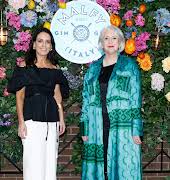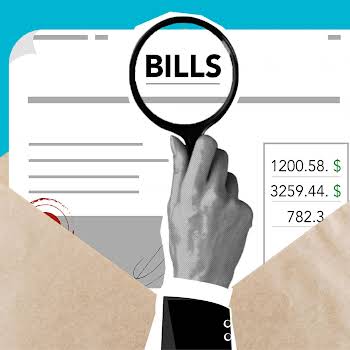
By IMAGE
17th Aug 2020
17th Aug 2020
There’s a big difference between shopping when you need something and shopping when you feel stressed, frustrated or lonely. Here financial expert Lorraine Donegan shares her tips for keeping emotional spending under control
I don’t know about you, but I am so over Covid!
I walk around the house humming the Queen classic ‘I Want to Break Free’ but unlike Freddie, it’s not lies I need to break free from – it’s my life!
I need a break from looking at the same four walls, the same (much-loved) faces, the same clothes, crockery, curtains and the same dog-mangled couch. Surely I am not alone?
What’s a girl to do? I can’t change the home I live in, I can’t (nor would I dream of), change my family. But thanks to the glory of the Internet, I can shop for alternatives to all the other bits and pieces that I’m sick of looking at.
Does that make me an emotional spender?
Answer = ABSOLUTELY!
But I’m not alone. According to Wolfgang Digital’s On the Money report from July 15th, monthly online revenues are more than double their pre-Covid average. In fact, Covid has propelled the Irish online economy ahead by a staggering four years to predicted 2024 levels!
If you are reading this and thinking “Sure, I’ve bought a few things online in the last few months but I really needed every single item”, well done you!
If, on the other hand, you now know the DPD delivery guy’s first name, or you’ve found yourself hiding purchases from your partner, or you’ve hit the ‘buy’ button after too many glasses of wine, or you’re buying everything that your favourite online influencer recommends… then pull up a chair, my friend. It is time we turn things around.
Kick the habit
Start by understanding what triggers your spending.
I know that my emotional spending is triggered by being peeved off with the lockdown, but what about you? Do you spend because you are worried/bored/stressed/frustrated/lonely, or do you shop because you’d rather be an emotional shopper than an emotional eater?
If you can identify what triggers your emotional spending you are one step closer to putting your money to better use. Why? Because next time that emotion is triggered, you’ll be more conscious of it and therefore more enabled to stop that purchase before it completes.
Don’t think you’ll be strong enough? Here are a few more tips:
- When not using your laptop for work, shut it down completely so that it’s more awkward to reboot and subsequently buy those boots, belts and bras! Not being able to instantly satisfy that craving because your laptop is powered down is surprisingly effective – just don’t reach for your phone instead!
- Replace the habit with something else. If the evenings/weekends are your ‘vulnerable time’, then try a new exercise class or get a walking/running buddy around this time so you don’t even think of shopping!
- Unsubscribe from the influencers and websites that feed your weakness, at least for a while.
- Delete the credit/debit card details from the websites you most frequent. The more barriers to purchase you can create, the more your bank balance will flourish.
A flourishing bank balance… what a magnificent thought! But it truly is accomplishable. I always guide my clients to apply the 50/30/20 rule to their income and it has never steered anyone wrong.
Start with your monthly income, be clinical when assessing and work out your priorities, and split that income in three ways:
- 50% for Needs i.e. mortgage/rent/utilities/loans, etc.
- 30% for Wants i.e. clothes/socialising/gym membership, etc.
- 20% for Savings i.e. your emergency fund, short term savings (for holidays and luxury items), long term savings (retirement planning).
For the most part, a lot of these costs will remain fairly similar month to month (i.e. rent, loan repayments, direct debits etc.) so what you really need to focus on is what fluctuates month to month. What’s that? You’ve guessed it – it’s the ad-hoc/“no two months are the same” amount you spend on things like online shopping!
So what’s my number one tip for solving that problem?
Wait for it…
Just wait…
Seriously – that’s my tip – WAIT!
Leave those purchases in your cart for at least 24 hours. If you still REALLY need to buy, then okay, perhaps you do really need them, but it’s more likely that your emotional state will have changed and your need to purchase will have decreased.
You don’t know till you try!
Lorraine Donegan, AKA the ‘Money Muse’, is a CEO & founder at Donegan Financial Services. If you’d like to ask any specific questions about any finance related topic, email [email protected]
Read more: Your retirement life will resemble your Covid-19 life if you don’t start saving now
Read more: How to talk to your partner about money (and yes, you really need to)
Read more: Financial advice: ‘I want to cut the cord on paying for my son and start saving for myself’























